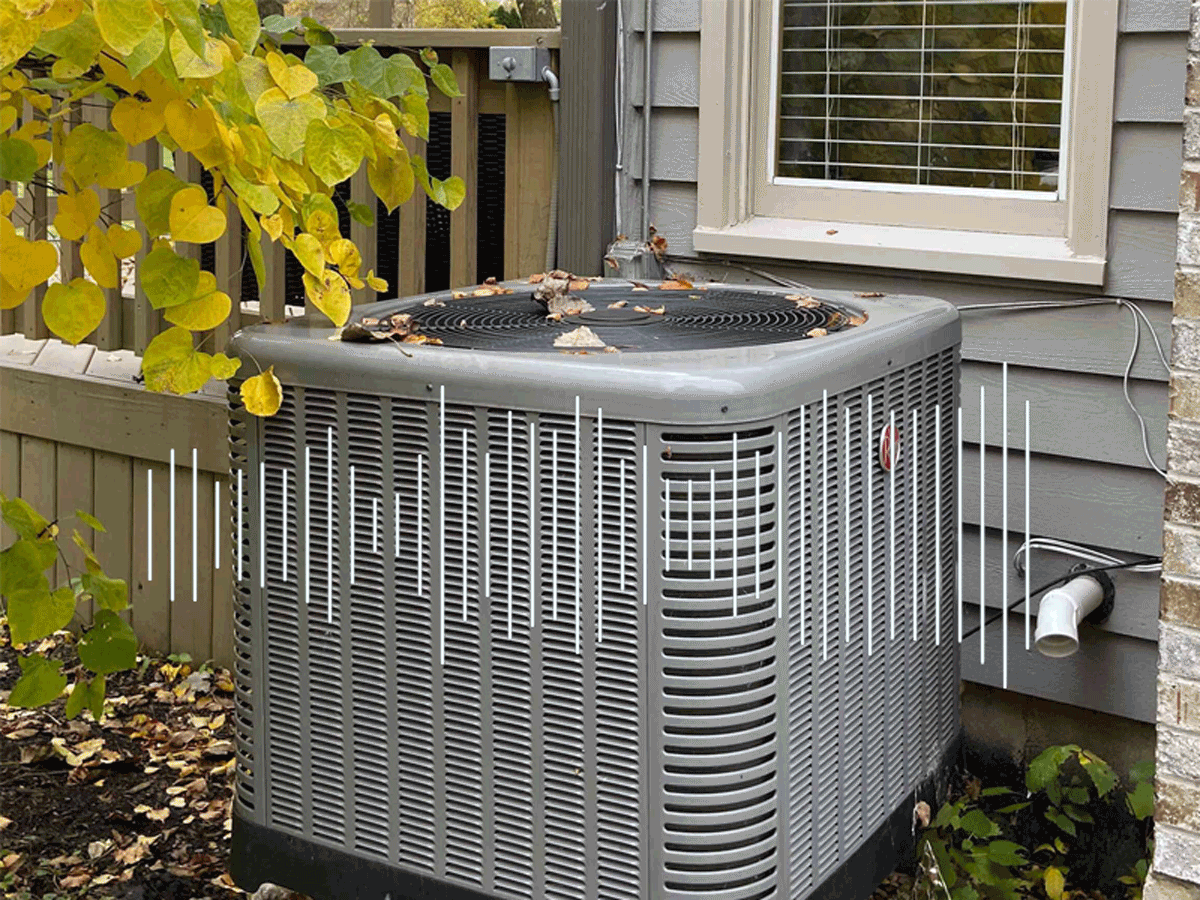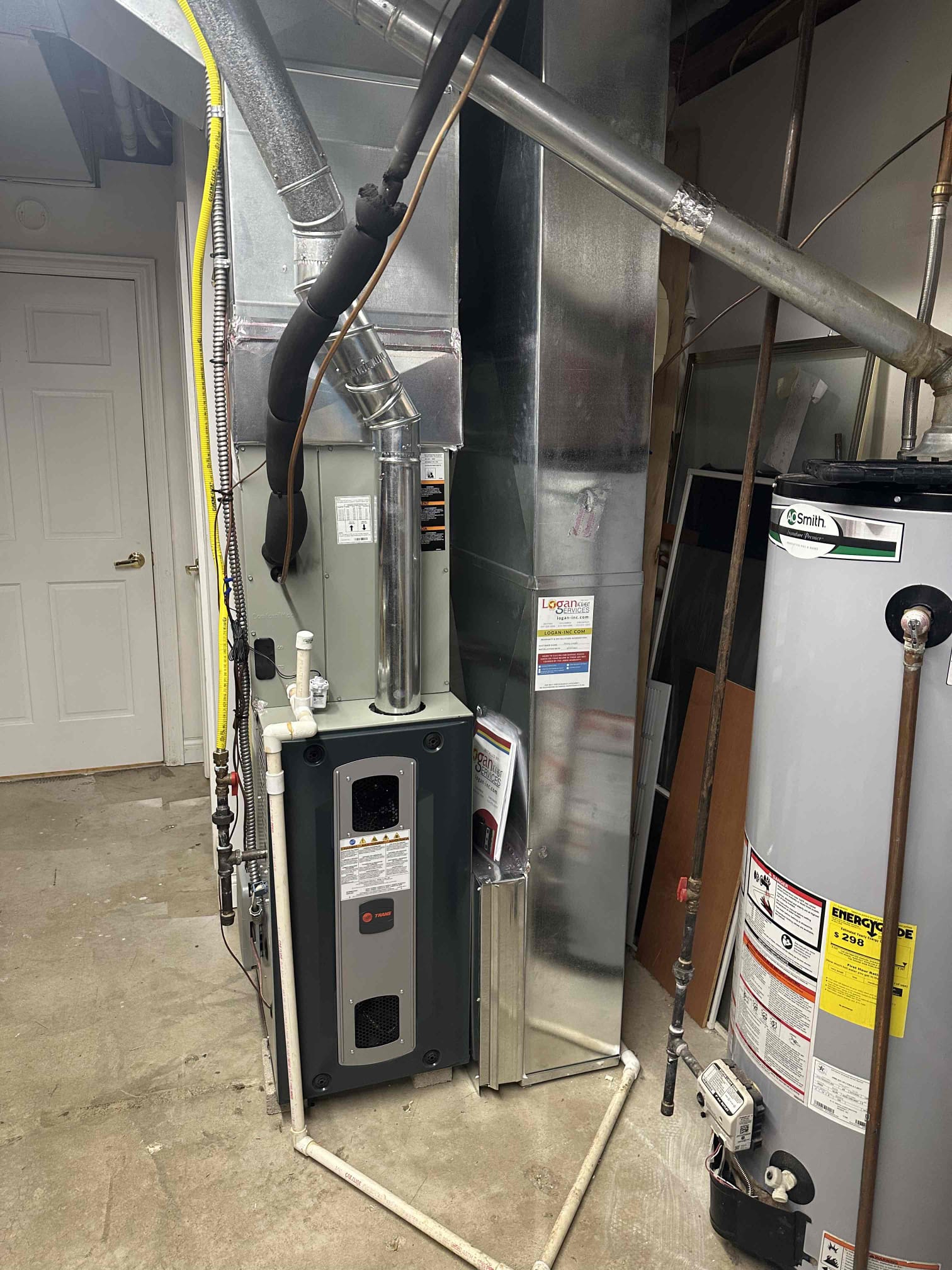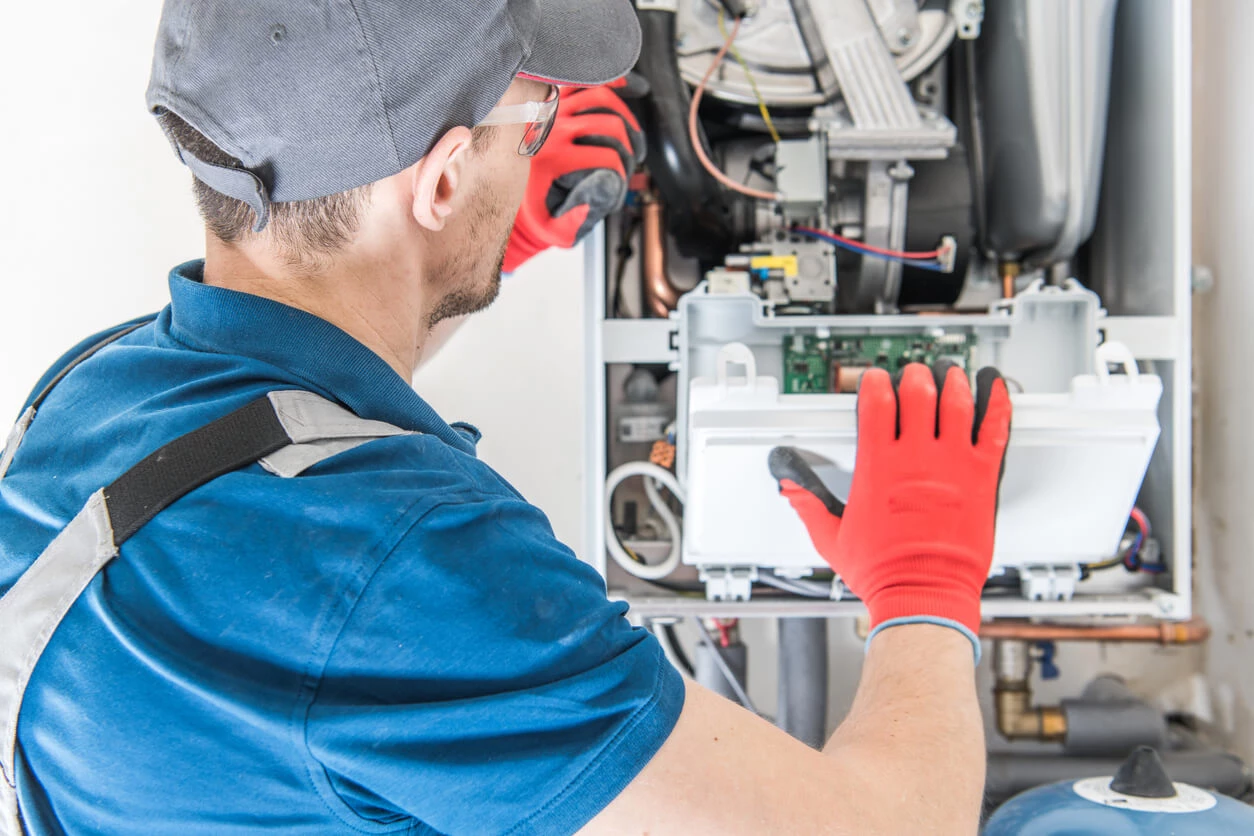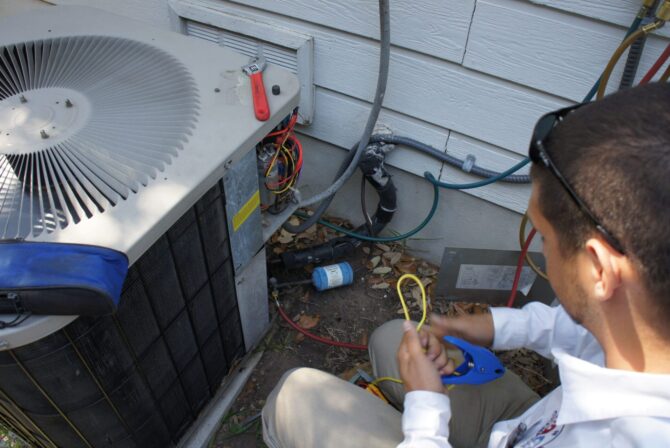Your heater may be making a rattling noise due to loose components or a cracked heat exchanger. Regular maintenance can prevent such issues by inspecting and tightening bolts, checking fan belts, and ensuring proper airflow through ductwork.
Neglecting maintenance can lead to a buildup of grime and soot, causing rumbling noises from the burners. In some cases, a dirty air filter or clogged burners can also lead to rattling sounds in your furnace. If left unaddressed, these issues can potentially escalate into more severe problems, such as a cracked heat exchanger or restricted airflow, jeopardizing the efficiency and safety of your heating system.
Regular servicing by HVAC professionals can help identify and resolve these issues before they worsen, ensuring your heater operates smoothly and quietly.


Credit: www.logan-inc.com
Common Causes Of Heater Rattling Noise
When your heater is making a rattling noise, it could be due to various reasons such as a cracked heat exchanger, clogged burners, or a dirty air filter. Routine maintenance can prevent these issues and keep your heater running smoothly.
To avoid potential hazards, it’s essential to address unusual noises coming from your furnace promptly.
Clogged Burners
When the burners in your heater become clogged, they can produce a rattling noise. This is often caused by a buildup of dirt or debris obstructing the burner ports.Dirty Air Filter
A dirty air filter can restrict airflow to your heater, causing it to work harder and potentially create a rattling noise. Regularly changing the air filter can help prevent this issue.Loose Bolts
Loose bolts or screws in your heater can vibrate during operation, leading to a rattling noise. Checking and tightening all the bolts in your heater can eliminate this source of noise. By addressing these common causes of heater rattling noise, you can ensure efficient and quiet operation of your heating system. Regular maintenance and inspection are key to identifying and resolving these issues before they escalate.Potential Dangers And Warning Signs
Is your heater making a rattling noise? The potential dangers and warning signs include a cracked heat exchanger, clogged burners, or a dirty air filter, which may lead to serious issues like carbon monoxide leaks. Routine maintenance and professional HVAC repair services can help prevent these issues.
Cracked Heat Exchanger
A cracked heat exchanger in your heater can lead to rattling noises when the system is in operation. This issue is not only a source of the annoying noise but also poses a severe danger. If left unaddressed, a cracked heat exchanger can result in a potential carbon monoxide leak, which is extremely hazardous to your health.
Risk Of Carbon Monoxide Leak
One of the critical dangers associated with a rattling heater is the risk of a carbon monoxide leak. A cracked heat exchanger can allow this poisonous gas to escape into your living space, leading to harmful health effects for you and your family. It’s crucial to address any rattling noise promptly to prevent the risk of carbon monoxide poisoning.
Signs Of Component Damage
- Unusual rattling or banging noises
- Inconsistent heating performance
- Visible signs of wear or rust on the heater
Troubleshooting And Prevention Tips
When it comes to your heater making a rattling noise, troubleshooting and preventing the issue are crucial for maintaining a well-functioning heating system. By following these tips, you can ensure that your heater runs smoothly and efficiently, without the disruption of loud and bothersome rattling sounds. Here are some essential troubleshooting and prevention tips to address the issue:
Regular Maintenance
Maintaining your heater regularly is key to preventing rattling noises. Professional HVAC technicians can inspect and service your heating system, addressing any loose components and identifying potential issues before they escalate. Regular maintenance also ensures that the heater operates efficiently, reducing the likelihood of rattling noises.
Cleaning And Adjustments
Regular cleaning and adjustments of your heater are essential for preventing rattling noises. Over time, dust, debris, and dirt can accumulate within the heating system, leading to potential obstructions and noisy operation. Cleaning the components and making necessary adjustments can help eliminate rattling and improve the overall performance of your heater.
Filter Replacement
Replacing the air filters in your heating system is a simple yet effective way to prevent rattling noises. Clogged or dirty filters can impede airflow, forcing the heater to work harder and potentially causing rattling sounds. Regularly replacing the filters ensures proper airflow and reduces the strain on the system, minimizing the chances of unwanted noises.
When To Seek Professional Help
If your heater is making a rattling noise, it may indicate a cracked heat exchanger. Seeking professional help can prevent a potential carbon monoxide leak and ensure your heating system operates safely. Schedule routine maintenance to inspect fan belts, loose bolts, and ductwork for any issues.
Loud Bangs Or Booms
If your heater is making loud bangs or booms, it is crucial to seek professional help immediately. These noises can indicate that your heat exchanger is at risk of cracking, which not only affects the efficiency of your heating system but can also be dangerous. Ignoring this issue can lead to further damage and potentially hazardous situations. A professional HVAC technician has the expertise to diagnose the problem and make the necessary repairs to ensure your heater operates safely and efficiently.Persistent Rattling Noises
Persistent rattling noises coming from your heater should not be ignored. They could be caused by a cracked heat exchanger, loose components, or debris trapped in the system. These issues can worsen over time and lead to more significant problems if not addressed promptly. Professional help is essential to accurately identify the source of the rattling and fix it to restore your heater’s proper function. Remember, a well-maintained and properly functioning heating system is crucial for your comfort and safety during the colder months.Unusual Furnace Behaviors
When you notice unusual behaviors from your furnace, such as frequent cycling on and off, uneven heating, or weak airflow, it is recommended to seek professional help. These issues could indicate underlying problems with various components of your heating system, including the blower, motor, or thermostat. Trying to fix these complex issues yourself can lead to further damage and potential safety hazards. A qualified HVAC technician can thoroughly inspect your furnace, identify the cause of these unusual behaviors, and provide the necessary repairs or adjustments to restore its optimal performance. In conclusion, when it comes to strange noises or unusual behaviors from your heater, it is always best to seek professional help promptly. Ignoring these issues can lead to more significant problems and potential safety hazards. Don’t take any chances with your heating system’s performance and your family’s comfort. Contact a trusted HVAC technician to diagnose and resolve the problem, ensuring your heater operates efficiently and safely throughout the winter season.Summary And Conclusion
If your heater is making a rattling noise, it could be due to issues such as loose parts, a dirty air filter, or a cracked heat exchanger. Regular maintenance and professional HVAC repair services can help prevent these problems and ensure your heater runs smoothly.
Be sure to address any unusual noises from your heater to prevent potential safety hazards.
If you’ve noticed a rattling noise coming from your heater, it’s important to take immediate action to address the issue. Ignoring the problem can lead to further damage and potential safety hazards. By ensuring safe and efficient heating, you can keep your home comfortable and minimize the risk of any potential accidents. Regular monitoring and maintenance are crucial to detect and prevent issues before they worsen.Importance Of Immediate Action
When your heater starts making a rattling noise, it’s essential to take immediate action to address the problem. Delaying repairs can lead to further damage, higher repair costs, and even hazardous situations. Ignoring the rattling noise can result in additional stress on the system, potentially causing other components to malfunction or break down. It’s best to contact a professional HVAC technician to diagnose and fix the issue promptly.Ensuring Safe And Efficient Heating
Addressing the rattling noise in your heater is not only crucial for your comfort but also for the safety of your home. A rattling noise could indicate loose parts, worn-out belts, or other issues that can compromise the functionality of your heating system. By scheduling routine maintenance services, you can have a professional inspect, clean, and adjust your heater to ensure safe and efficient operation. Regular maintenance helps identify and resolve any potential safety risks and allows your heater to perform optimally.Regular Monitoring And Maintenance
To prevent a rattling noise and ensure the longevity of your heating system, regular monitoring and maintenance are key. Regularly inspect your heater for any signs of wear and tear, loose components, or unusual noises. Scheduling professional HVAC maintenance services at least once a year can help identify and address any potential problems before they escalate. During maintenance, fan belts, ductwork, and other components are thoroughly inspected and tightened, ensuring your heater operates smoothly and efficiently. In conclusion, a rattling noise from your heater should not be ignored. Immediate action is vital to address the issue promptly and prevent further damage. By ensuring safe and efficient heating through regular monitoring and maintenance, you can keep your home comfortable and minimize the risk of any potential hazards. Don’t hesitate to contact a professional HVAC technician to diagnose and repair the rattling noise in your heater. Remember, a well-maintained heating system is crucial for your comfort, safety, and energy efficiency.
Credit: deljoheating.com

Credit: www.championac.com
Frequently Asked Questions Of Why Is My Heater Making A Rattling Noise
How Do I Stop My Heater From Rattling?
To stop your heater from rattling, schedule routine maintenance services. A professional HVAC technician will inspect fan belts, loose bolts, ductwork, and more to prevent furnace rattle. Cleaning and adjusting the system annually can also prevent the buildup of soot and grime.
A cracked heat exchanger could be another cause, potentially leading to carbon monoxide leaks. If you hear loud bangs, rumbles, knocks, or booms, it’s best to have the heater checked immediately.
Why Is My Heater Making A Rumbling Sound?
A rumbling sound in your heater could be caused by a buildup of soot and grime on the burners. It is important to have your system professionally cleaned and adjusted each year to prevent this issue. Scheduling routine maintenance services can help prevent furnace rattling.
Why Is My Furnace Making A Loud Rattling Noise?
A loud rattling noise from your furnace could be due to a cracked heat exchanger. This problem requires immediate professional attention to prevent potential hazards. Regular maintenance can help prevent such issues.
When Should I Worry About My Furnace Noise?
If your furnace makes loud bangs, rumbles, knocks, or booms, it may indicate a cracked heat exchanger or dirty burners, which can be dangerous.
Q: Why Is My Heater Making A Rattling Noise?
A: A common cause of rattling noise is a loose or damaged blower fan. Contact a professional HVAC technician for inspection and repair.
Conclusion
If your heater is making a rattling noise, it’s essential to address it promptly for safety and efficiency reasons. Regular maintenance and professional inspections can help prevent such issues. Whether it’s a clogged filter, loose bolts, or a cracked heat exchanger, identifying and resolving the root cause is crucial for a well-functioning heating system.
Keep your heater in top condition and enjoy a peaceful, warm home.